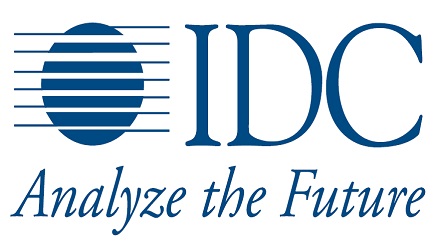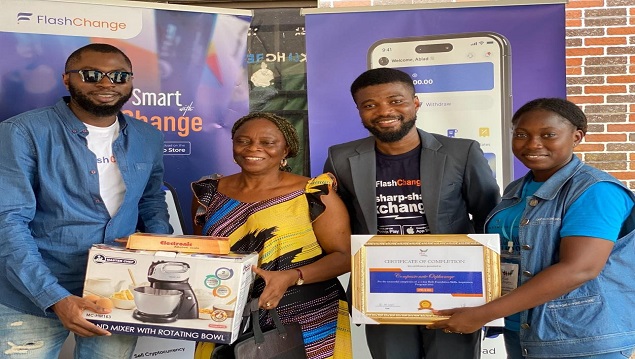General News
IDC Says IoT Will Dramatically Transform Manufacturers PS&O In 2015

International Data Corporation (IDC) Manufacturing Insights asserts that the Internet of Things (IoT) is on track to dramatically transform manufacturers’ products, services, and operations (PS&O) in 2015.
While the hype persists around IoT, IDC Manufacturing Insight notes there are many signs that show confidence in IoT is with good reason.
The latest report, “Perspective: The Internet of Things Gains Momentum in Manufacturing in 2015,” details the primary applications of IoT in manufacturing as well as manufacturers’ current expectations, investment plans, and concerns.
According to IDC Manufacturing Insights, although there are many use cases for manufacturers, IoT applications essentially boil down to two — for processes and products:
• Support the process: By 2020 at least half of all corporate stand processes will have automated data acquisition; a quarter will have self-correction capabilities.
• Support the products: By 2020, onboard service revenue will double its share of total industry revenue. Technology becomes a core product competency.
According to IDC’s 2014 Global Technology and Industry Research Organization IT Survey, manufacturers especially have high expectations for the IoT’s impact on lowering operational costs.
In addition, they expect IoT investments to yield advantages in retaining customers, attracting new customers, improving service and support, and differentiating from their competition.
Kimberly Knickle, practice director at IDC Manufacturing Insights and author of the report suggests, “As IoT provides the basis for an increasing amount of automated data acquisition, manufacturers will be able to adapt their processes and their products not just for incremental improvements but also for more transformative purposes, including self-healing or autonomous processes and capabilities that evolve into new business models.”
Current investments in IoT that are unique to the manufacturing environment are taking place in three major initiatives:
Smart manufacturing: Applying IoT to the overall production process as well as individual assets, with outcomes that could increase production output, product quality, or operations and workforce safety and lower resource consumption
Connected products: Applying IoT to vehicles and industrial machinery, to impact product performance, including collecting detailed information on products in the field, remote diagnostics, remote maintenance when possible, and even remote operations, with product as a service as a new delivery model
Connected supply chains: Applying IoT to increase visibility and coordination in the supply chain, tracking assets (trucks, cases, containers, etc.) or inventory — inbound or outbound — for more efficient supply chain execution and integrated business planning
Future IDC Manufacturing Insights research will identify more of the IT suppliers that are contributing to IoT investments in the manufacturing industry, detail the technology components in the most common use cases, as well as key considerations for those components.
General News
FG to Introduce New Tax Credit Scheme to Replace Pioneer Status Incentive

As part of Nigeria’s ongoing tax reform efforts, the federal government is proposing a new investment-driven incentive framework aimed at addressing long-standing inefficiencies in the current Pioneer Status Incentive (PSI).

The new scheme, known as the Economic Development Incentive (EDI), is designed to stimulate real economic activity by tying tax relief directly to verifiable investments.
This was the focus of a keynote address delivered by Taiwo Oyedele, Chairman of the Presidential Committee on Fiscal Policy and Tax Reforms, at BusinessDay’s Policy Intervention Series held on April 22 in Lagos.
According to Oyedele, a close review of the Pioneer Status Incentive revealed structural flaws that have undermined its effectiveness. “Once granted Pioneer Status,” he said, “companies may import goods classified as ‘pioneer products’ tax-free, effectively allowing them to operate without tax obligations—even with minimal value addition to the economy.”
He further noted that while the PSI was initially designed to encourage investment, it created loopholes and ambiguities. For example, businesses often benefit from extended tax relief even after the designated holiday period ends.
“The assets used during the Pioneer period are essentially frozen in time,” Oyedele explained. “They’re treated as if acquired after the incentive ends—meaning companies only start claiming deductions once the holiday period is over. This creates long-term tax advantages that go well beyond the policy’s original intent.”
He also pointed out that the PSI makes it difficult for the government to quantify revenue forgone and for investors to clearly assess the value of the incentive—undermining transparency on both sides.
The Economic Development Incentive
The proposed Economic Development Incentive is a departure from the one-size-fits-all model. Instead, it’s structured around priority sectors—primarily manufacturing, followed by services and infrastructure—that have strong multiplier effects on the economy.
Another key design feature is the introduction of minimum investment thresholds to ensure only scalable and impactful projects qualify. For instance, companies operating in capital-intensive sectors like utilities would need to invest at least N200 billion to be eligible for the tax credit.
“The EDI is about real impact,” Oyedele said. “It’s time-bound, sector-targeted, and tied to actual capital deployment—not just approval on paper.”
Unlike blanket tax holidays, the EDI grants companies a 5 percent annual tax credit over five years—totaling 25 percent of the value of their qualifying investment. Importantly, this is in addition to existing capital allowances, making the scheme particularly attractive to long-term investors.
Crucially, approval under the scheme does not mean the investment has already been made. It only confirms that the company has a verified plan. The incentive kicks in only after capital is actually deployed, and all investments are subject to inspection by the Industrial Inspectorate Division.
Oyedele broke down how the system works using practical examples:
If a company invests N10 billion in Year 1, it earns a N500 million tax credit each year for five years. If an additional N5 billion is invested in Year 2, that new investment begins its own five-year 5 percent cycle—N250 million annually until Year 6.
If the company continues investing progressively, each round of investment starts a new five-year cycle of tax credits, potentially extending the benefit period up to 10 years.
For instance, if a business has a N15 million tax liability in a given year and applies N25 million in tax credits, its liability is wiped out entirely, with the N10 million balance rolled over to subsequent years.
However, there’s a catch: if a company fails to follow through on its investment plan or halts capital deployment, unused credits are forfeited. This accountability mechanism ensures that only consistent and credible investments are rewarded.
General News
MTN Nigeria Faces Class Action Lawsuit Over Alleged Data Mismanagement

Nigerians have launched a class action lawsuit against MTN Nigeria, accusing the telecom giant of unexplained data usage and rapid depletion.

The controversy erupted after a viral post on X (formerly Twitter) showcased an individual’s interest in taking legal action, along with evidence of unusual data activity.
This post rallied many others to join the cause, sharing their own grievances and pledging support.
A Google Form was circulated to collect names of affected users, highlighting issues such as false data top-ups and excessive costs without value.
Comparisons to data usage and pricing in other countries only fueled the frustration, and numerous Nigerians expressed their determination to pursue justice.
Social media buzz amplified the issue, with mixed reactions ranging from encouragement to skepticism about the lawsuit’s potential impact.
Meanwhile, MTN Nigeria has not yet released an official response to these allegations.
General News
FlashChange Partners Ruth Foundation to Empower Vulnerable Children in Alimosho with Skill Acquisition

In an inspiring initiative to uplift the next generation, FlashChange and Ruth Foundation have successfully implemented the “Orphanage Skill Acquisition Assembly 2.0 program,” a skills empowerment program for vulnerable children in Alimosho, Local Government Area of Lagos state.

The five-day programme, which began on Monday, April 14, was created to equip vulnerable children aged 4 to 18 years with essential life skills such as financial literacy, fashion design, photography, creative arts, cooking, and leadership development
Speaking at the closing ceremony of this year’s edition of the programme, the Chief Operating Officer, Flashchange, Olamide Ajibola said, “We are delighted to be part of this life-changing initiative.
“At FlashChange, we believe that children are the heartbeat of every community, by investing in their development today, we are not just shaping the future of individuals but nurturing future leaders, creators, and change-makers that would make a positive contribution to the growth and development of the society in the near future.”
“Initiatives of this nature gladdens our heart and we are open and willing to participate in them at any time. In the coming months, we hope to do more in that area as our own little way of improving society. This is in line with our CSR pillars, which include human capital development.”
Ajibola appreciated the benefitting children for accepting to be part of the life changing training which has the capacity to catapult them to a brighter future. The facilitators were also commended for impacting the children with the skills and knowledge to help shape their lives.
The founder Ruth Foundation, Itunuoluwa Ruth Da-Silva, in her remarks, expressed the foundation’s deepest appreciation to partnering organizations like FlashChange for believing in the vision and throwing their full weight behind it.
She said, “It will interest you to know that 153 vulnerable children benefitted from the Orphanage Skill Acquisition Assembly 2.0 programme and the training ran simultaneously at Compassionate Orphanage home; Precious Pearl Orphanage; Little Saints Orphanage and House of Mercy Orphanage respectively. Providing the children access to knowledge and skills early in life to create a ripple effect that can transform the entire community.”
The Chief Marketing Officer, FlashChange Jesujoba Ojelabi commended Ruth foundation for the initiative and urged the children to take the skills learnt seriously, as it has the capacity to change their lives for good.
He said, “As a company, we would be proud to lend our support to the foundation whenever we are called upon to do so in the future. My candid advice to you children would be this, to be great ambassadors of this initiative, you need to continuously put to practice the skills and knowledge you have acquired from the programme. We are indeed proud of you all and the success stories recorded so far.”
To support the continuous development of the children the following items were donated; electric sewing machine, cake mixer; packs of Yeye yarn, packs of pins, some stitch markers, scissors, measuring scale, make-up kit box filled with make-up tools among several others.
FlashChange and Ruth Foundation therefore urge community leaders, government organizations, private sector partners, and stakeholders to support programmes of this nature aimed at equipping children with the skills they need to thrive in a world that is evolving quickly.

 Telecom2 days ago
Telecom2 days agoMTN Nigeria Takes Broadband Services to the Next Level with FibreX Launch

 News2 days ago
News2 days agoSERAP Files Lawsuit Against NBC Over Ban on Eedris Abdulkareem’s Protest Song Tell Your Papa

 Telecom1 day ago
Telecom1 day agoDigital Transformation Remains Africa’s Gateway to Economic Advancement – Adumike

 Telecom1 day ago
Telecom1 day agoPAFON 2.0: Experts Discuss Pathways to Boost Financial Inclusion in Nigeria

 E-Financial1 day ago
E-Financial1 day agoCBN, NGX Group Defend Economic Reforms at Nasdaq

 General News1 day ago
General News1 day agoEFCC Clarifies SCUML Certificate Misuse amid CBEX Ponzi Scheme Scandal

 E-Financial2 days ago
E-Financial2 days agoFCMB Group Redefines Corporate Storytelling with The Power Of The Group TVC

 General News1 day ago
General News1 day agoFlashChange Partners Ruth Foundation to Empower Vulnerable Children in Alimosho with Skill Acquisition




























